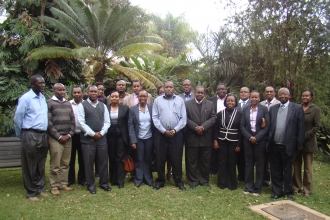Land Tenure Reform in Asia and Africa: Assessing Impacts on Poverty and Natural Resource Management
This book is about land tenure policies from an international perspective. It adds on the first book published by Holden and Otsuka entitled The Emergence of Land Markets in Africa: Assessing the Impacts on Poverty, Equity, and Efficiency (2009) in a much deeper way with a stronger and clearer focus on policy issues.



